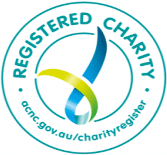While everyone is quick to recognise overt racism when we see it—we share it on social media and read about it in the news—many of us overlook a subtle form of racism that’s often disguised as a joke, stereotype or subconscious decision we make. Here are 10 signs you might have inadvertently done something ‘casually’ racist:
1. You start a sentence with “I’m not racist but…”
Prefacing a potentially racist statement with “I’m not racist but” doesn’t make it less offensive. So next time you feel the need to start a sentence this way, remember: it’s unlikely anything good will follow those four words…
2. “I’m not a racist. I have black friends.”
Having friends from an ethnic minority background does not give you permission to make racist comments. What might be acceptable to your close friends, may be offensive to someone outside of your trusted circle.
3. “You speak so well for an Asian.”
While you genuinely think you’re giving someone a compliment, what you’re also saying is that Asian people (or other ethnicities) have an inferior grasp of English. And even as Australia continues to welcome new migrants into our society, the fact is many people of Asian backgrounds are Australians who were born or raised here.
4. “Yes but where are you really from.”
This innocent question stems out of curiosity, but also implies that people who don’t have white skin or an Australian accent can’t call Australia home or couldn’t possibly have grown up here. As a multicultural society, it’s important to respect every resident’s right to call Australia home. We suggest asking the less derisive question: What’s your cultural heritage or background?
5. You get nervous around Muslims or Hindus on airplanes.
Racial profiling happens every day and it’s not just by law enforcement officers or airport security staff; many regular Australians also hold prejudices towards people of certain cultural or religious identities. What you may call a ‘harmless stereotype’ often impacts the daily lives of entire groups of people.
6. You cross the road to avoid people of a certain race.
See number 5.
7. You don’t see color, just the human race.
While it may come from a well-intended place, this form of ‘colourblind racism’ dismisses society’s history of racism, system of white privilege, and the everyday experiences that people still face because of racism. Even if you can ignore skin colour, society does not.
8. You are more offended by “reverse-racism.”
Some white people get upset by what they call “reverse racism”. They believe white people are adversely affected by policies designed to help minority groups in society. If reverse-racism gets you upset and defensive, this educational video might help reverse the situation…
9. When someone’s offended, you tell them to “take a joke.”
With Australia’s laidback culture, it’s easy to dismiss those offended as uptight people who ‘can’t take a joke’. Instead, try to see it from their point of view or learn about their experiences. Remember: we don’t have the right to choose who gets offended by our jokes. Impact is more important than intent.
10. Avoiding somebody because of their race, nationality or ethnicity.
This is the subtlest form of casual racism but it can be as hurtful as calling people racist names. Avoiding somebody can make them feel as if they don’t belong in Australia.
What Exactly Is Casual Racism?
Casual racism is racially-insensitive behaviour that often goes unnoticed in everyday interactions. It’s often hard to spot, because casual racism is so commonplace and normalised that it sometimes forms part of our daily lives.
Casual racism can include jokes or statements that highlight (in a negative way) cultural differences such as physical appearance, cultural practices or accents. It can also be expressed through beliefs, prejudices or behaviours that we sometimes don’t realise we exhibit. To learn more, read Explainer: what is casual racism– a piece written by our academic partners Jacqueline Nelson from the University of Western Sydney and Jessica Walton from Deakin University.
- One simple way to see if you have subconscious biases is by taking Harvard’s Race IAT Test.
How It Affects People
Casual racism is more than a ‘harmless joke’ or comment. It often leads to subconscious discrimination, marginalises those who stand up and ultimately helps real racists in our community validate their views. By normalising racial stereotypes in society, we also help to perpetuate the next generation of schoolyard and office bullies.
This evocative video, made by anti-depression organisation Beyond Blue, explains how casual racism can also affect people’s health.
Also Read: What is White supremacy and how do white supremacist groups operate in our community?
How Can You Help?
Empathise – Whatever your race, showing empathy is a good place to start. This means listening to people affected by racism, hearing about their everyday struggles, and understanding the effects of privilege. To put yourself in the shoes of someone experiencing racism, try our Everyday Racism app.
Speak up – Discover ways you can safely speak up against racism.
Keep the conversation going – One of the best ways to make casual racism more visible is to talk openly about it. We encourage you to share your experiences at work, in social situations and on social media. By speaking up together, we can work towards making casual racism unacceptable in our everyday lives. What do you think? Share your thoughts on our Facebook page.



10 signs you might be a utopian totalitarian:
1. You believe there are correct and incorrect opinions/perspectives.
2. You believe only yours is correct.
3. You make yours into compulsory laws.
4. When laws aren’t possible, you badger with propaganda.
5. You avoid people who don’t agree with you.
6. You presume these people are malevolent.
7. You construe any criticism or doubt as outright hostility.
8. You censor and ostracise..
9. You fire people from their jobs for not agreeing with your agenda.
10. You fear the uncertainty of genuine liberty.
We’re not clear what your point is – are you accusing us of doing all of the above? Do we need to point out the irony here?
That’s really thinking at an impeissrve level
Reading this, i realised that I’ve not only been a victim of racism, but also a casual racist myself. It’s really sad how these simple sentences can actually hurt someone, especially if the person is new to this country, and is trying to fit in. When they are new to the country, hearing such statements can actually hurt their feelings, and make them feel as if they are not welcomed here. This is similar when an Australian hears: “you speak so well for a ___”. I mean, this may sound like a compliment to the speaker, but it might just hurt the one that receives it. We need to realise that our country has many non-anglo celtic people that were born and bred here. In their cases, their first language would most likely be English, and of course, they would speak English well. Australians need to realise that multiculturalism is now our identity, and that we now need to accept and embrace it for the better of our nation.
Thank you very much for your comment EmbracingOurColours.
Due to the casual joking or satirical nature of Australian, much of the racism people experience they may unknowingly also provide. It is part of the social fabric at the moment. Embracing discussions, as you have, on the topic will encourage the nation to reflect and alter perceived acceptable behaviour as not being the case. Some jokes are not a joke.
I think that I might be a casual racist. I hate canadians because they are from the wrong place. Everyone who lives in Canada should be dead because the canadians burned down the whitehouse. This is not okay, and it is reverse racism. Am i a casual racist? Thanks for the feedback dudes1!